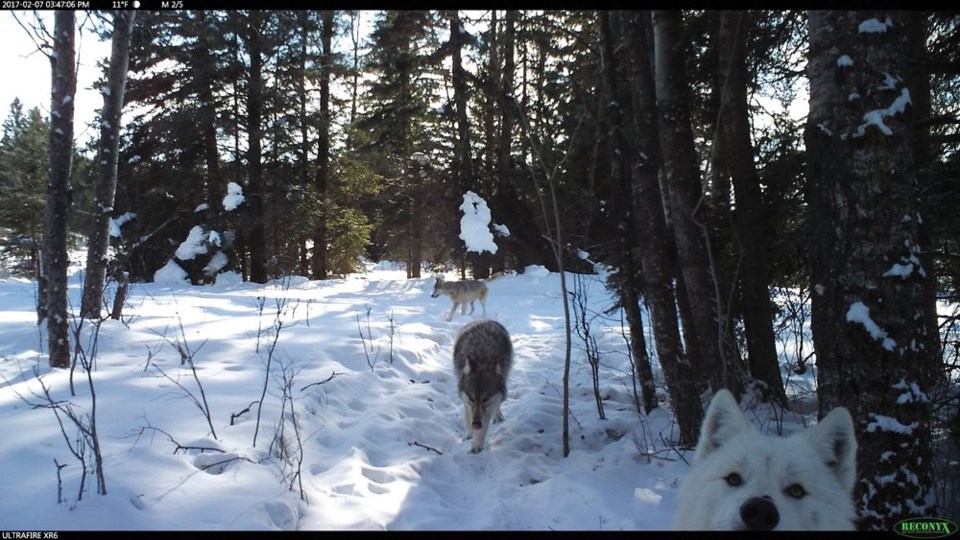Since the spring of 2016, Christina Prokopenko has been collecting data on the behaviour and population of wolves in Riding Mountain National Park (RMNP).
Prokopenko, who is a Vanier Scholar completing her doctoral thesis out of Memorial University in Newfoundland, undertook the research to better understand the ecology of RMNP’s estimated 70 to 75 wolves and their prey. Her method was to study wolves with GPS-equipped collars, to determine areas of intense use, indicated by clusters of points in a specific area over time.
Thirteen animals from three packs were collared in 2016 and 14 animals from five packs were studied in 2017.
The GPS data allowed Prokopenko to determine specific wolf behaviour and to collect samples, including hair and scat, tested to determine animal relatedness and diet information. If prey was also found at a site, hair, bone marrow and a tooth were collected and tested to reveal genetics, condition and the age of the animal.
Prokopenko also found variation between wolf packs in their hunting behaviour, and not surprisingly, seasonal variation in diet, which is more diverse during the summer when smaller prey, like beavers or young ungulates are available. “In winter,” said Prokopenko, “we are seeing that RMNP wolves are changing their diet composition from elk to moose.” As in past research, testing of scat has once again revealed no evidence of domestic animals — so no livestock.
“We are also finding that boundaries between packs are not as distinct as wolf territories found in other areas,” she said (such as in Yellowstone National Park).
“In RMNP the core area of each pack is discreet, but the edges overlap. Wolves here seem more tolerant of other wolves entering their pack territory.” In spite of this, of the animals studied, two deaths were attributed to pack-to-pack aggression.
Of the 27 wolves collared, 14 died during the study; the two in the pack aggression, eight attributed to complications from disease, and four as a result of wolf/human interaction (two animals were shot, one trapped and one poisoned when venturing outside the park). Even though these few went outside the park, the GPS-collared sample population were observed to spend the majority of their time within RMNP boundaries.
“Given the interesting dynamics observed during this research project, Parks Canada will continue to monitor the wolf population in the future,” said Prokopenko. “This effort will inform the management and conservation of wolves in RMNP. In addition to learning about wolves in this area, the data is an important comparison for other wolf systems across North America.”
Grey wolves are an interesting species — the largest member of the dog family, and living in highly socialized packs with a strict hierarchy. They have a complex communication system and the care of pups is not restricted to the biological parents, as there are “babysitter wolves” within a pack to allow the parents to hunt.
The Anishinabe word for wolf (ma’iingan) means “our brother,” to say, “what happens to one happens to the other.” In Ojibway culture, wolves were said to have been put on Earth, “to show us the way.”
The 1995 reintroduction of wolves to Yellowstone National Park has taught us that they are crucial in conserving the health of ecosystems and the well-being of our environment. There, their presence helps keep the deer and elk population in check, and smaller numbers mean less overgrazing of riparian areas, improving the habitat for insects, birds and beavers. This allows beavers to resume their work of creating dams, thus, keeping rivers clean to the benefit of aquatic life.
Scientists agree that Yellowstone National Park is healthier now than it has been for years. Hopefully, we’ll be able to say that of RMNP, too.
Candy Irwin writes from Lake Audy, Manitoba.




